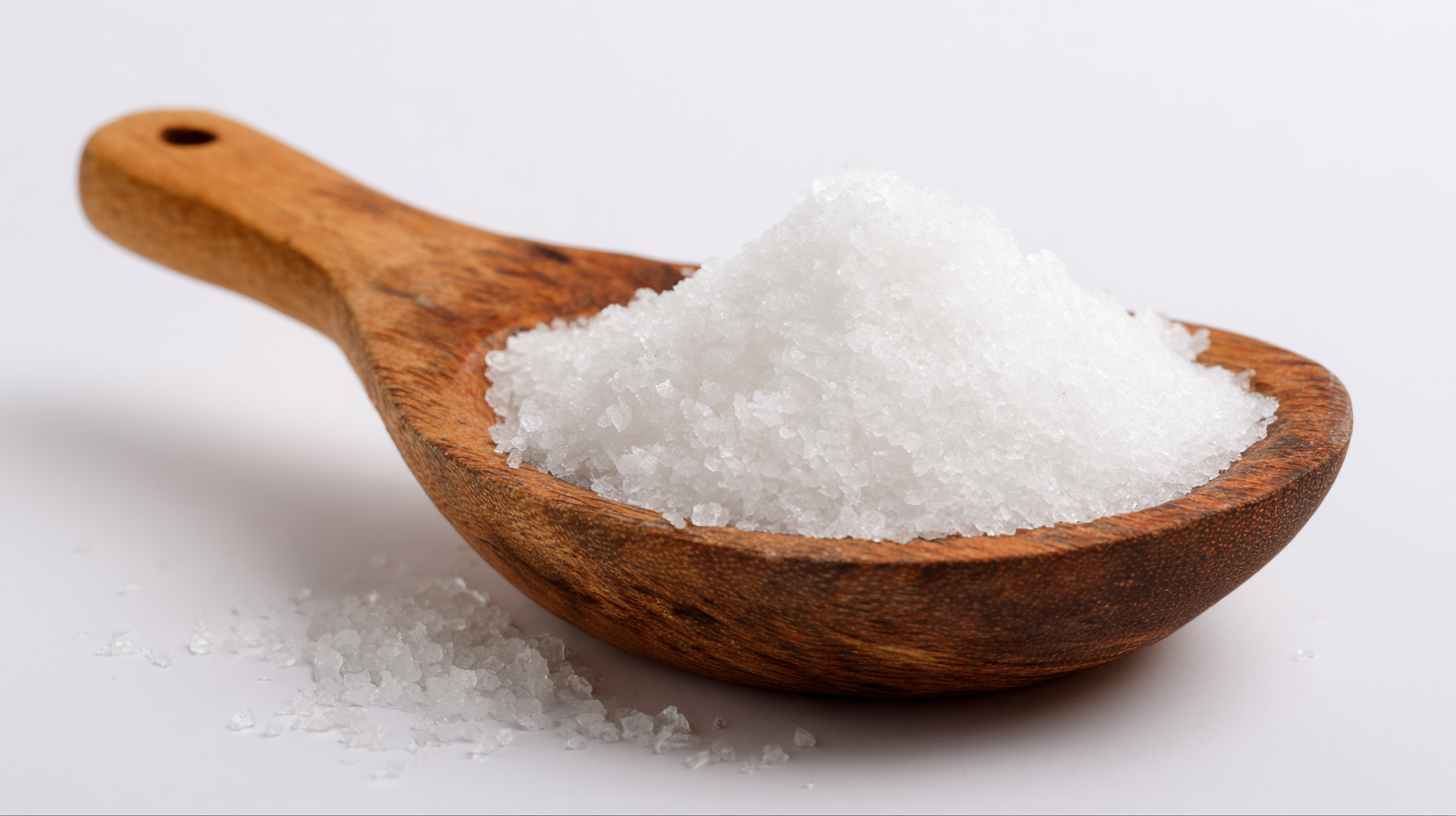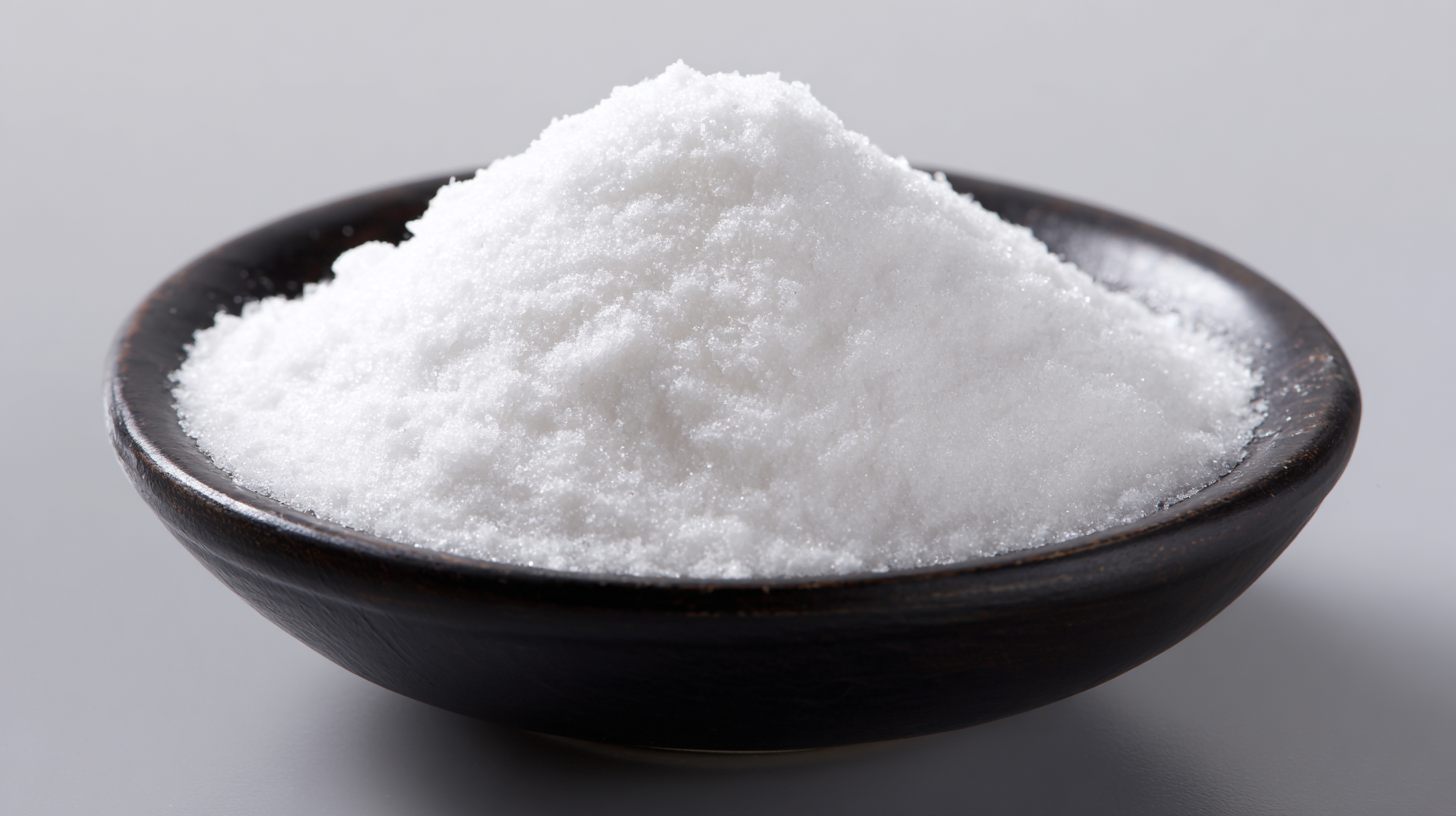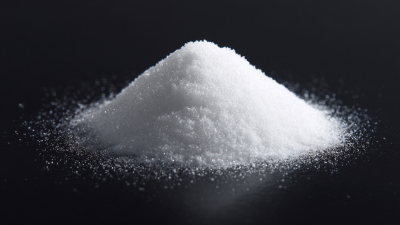In recent years, the demand for Potassium Bisulfate Salt Compound has witnessed a significant rise, driven by its versatile applications across various industries, including agriculture, food processing, and water treatment. According to a report by MarketsandMarkets, the global potassium bisulfate market is projected to reach USD 123 million by 2025, growing at a CAGR of 4.6% due to its effectiveness as a fertilizer and a food preservative. Its unique chemical properties not only enhance crop yield but also play a crucial role in maintaining the quality of food products. As industries increasingly prioritize sustainable and efficient solutions, understanding the extensive applications and benefits of Potassium Bisulfate Salt Compound becomes essential for professionals looking to innovate and improve their processes. This guide will delve into the various solutions provided by this compound and how they address specific industry challenges.

Potassium bisulfate, often utilized in various industrial processes, is a key player in several manufacturing applications. One of its most prominent uses is in the production of fertilizers. According to a report by Grand View Research, the global market for potassium-based fertilizers is expected to grow significantly, reaching USD 36.6 billion by 2025. Potassium bisulfate enhances nutrient availability, making it an essential component for efficient crop production.
Another crucial application of potassium bisulfate is in the glass manufacturing sector. It acts as a fining agent, helping to eliminate bubbles and other impurities in molten glass. According to a study published by the International Journal of Advanced Manufacturing Technology, the use of potassium bisulfate can improve the quality of glass, leading to higher product yields and reduced costs. Additionally, the compound plays a vital role in the food industry, where it serves as a preservative and pH regulator, ensuring food safety and stability. These applications underscore the versatility and importance of potassium bisulfate across multiple industries, driving innovation and efficiency in manufacturing processes.
Potassium bisulfate, often overshadowed by its more commonly known counterparts, plays a pivotal role in food preservation. One of the most compelling benefits of this compound is its efficacy as a preservative. According to a study published by the Food Science Journal, potassium bisulfate can extend the shelf life of various produce by up to 30%, making it an invaluable asset for both manufacturers and consumers aiming to reduce food waste. This preservation capability stems from its ability to inhibit microbial growth, particularly in acidic foods, thereby maintaining the integrity of flavor and texture.
Moreover, potassium bisulfate is recognized for its role in maintaining the nutritional quality of preserved foods. The USDA reports that the use of potassium bisulfate has been linked to a higher retention of vitamins and minerals compared to other preservatives. Additionally, this compound serves as a natural alternative to sulfites, appealing to health-conscious consumers and those with sensitivities. Its versatility is further highlighted in its applications across a variety of food products, such as dried fruits, sauces, and marinades, ensuring that safety and quality standards are upheld without compromising nutritional value.
This bar chart illustrates the key benefits of using potassium bisulfate in food preservation, highlighting its effectiveness in ensuring food safety, extending shelf life, enhancing flavor, preserving color, retaining nutrients, inhibiting microbial growth, and overall cost-effectiveness.
 Potassium bisulfate, a versatile salt compound, plays a significant role in various agricultural applications. Its ability to act as a pH adjuster, fertilizer, and pest control agent makes it a valuable resource for farmers and gardeners alike. One innovative use of potassium bisulfate is as a soil amendment. By lowering soil pH levels, it helps create a more acidic environment that can enhance nutrient uptake for acid-loving plants, such as blueberries and azaleas.
Potassium bisulfate, a versatile salt compound, plays a significant role in various agricultural applications. Its ability to act as a pH adjuster, fertilizer, and pest control agent makes it a valuable resource for farmers and gardeners alike. One innovative use of potassium bisulfate is as a soil amendment. By lowering soil pH levels, it helps create a more acidic environment that can enhance nutrient uptake for acid-loving plants, such as blueberries and azaleas.
Additionally, potassium bisulfate can be utilized as a foliar spray to improve plant health. When applied to the leaves, it provides essential potassium and sulfur, which are crucial for promoting flower and fruit development. This compound also acts as a safeguard against certain fungal diseases, thus ensuring healthier crops.
Tip: When using potassium bisulfate as a soil amendment, it’s essential to test your soil pH beforehand. This will help you determine the correct amount needed for optimal results. Also, consider applying it during either early spring or fall to maximize its effectiveness in adjusting soil conditions before the growing season begins.
When handling potassium bisulfate, safety should always be a priority. This compound, commonly utilized in various applications including food processing and chemical manufacturing, can pose certain risks if not managed properly. Here are three essential safety guidelines to follow.



Potassium bisulfate, a key salt compound in various industries, often falls prey to misconceptions. One common myth is that potassium bisulfate is solely used as a fertilizer. In reality, while it does play a role in nutrient management, its applications extend to pH adjustment in water treatment and as a preservative in food processing. According to industry reports, potassium bisulfate can enhance soil health by improving nutrient uptake efficiency, making it invaluable for turfgrass management.
Another myth suggests that potassium bisulfate is harmful to the environment. However, research indicates that, when used correctly, it poses minimal risk. The compound can aid in reducing soil salinity, promoting healthier plant growth, and ultimately contributing to a sustainable ecosystem. Always consult with agronomy professionals to ensure its appropriate application.
Tips: When using potassium bisulfate, ensure you're applying it at the correct dosage based on soil tests. Regularly monitor soil pH levels to optimize its benefits. Additionally, combine potassium bisulfate usage with organic amendments to boost soil microbial activity for enhanced sustainability.
| Myth | Fact | Application | Benefits |
|---|---|---|---|
| Potassium Bisulfate is not soluble in water. | It is highly soluble in water, making it effective for various applications. | Fertilizer | Provides potassium and sulfur for plant growth. |
| Potassium Bisulfate is toxic to humans. | It is considered safe in regulated amounts for many uses. | Food Preservation | Helps to maintain freshness and prevent spoilage. |
| It is only used in industrial applications. | It is also used in household products. | Household Cleaners | Acts as a cleaning agent and pH adjuster. |
| It cannot be used in organic farming. | It is allowed in organic farming under certain conditions. | Organic Fertilizer | Supports sustainable agriculture practices. |
| Potassium Bisulfate is the same as potassium sulfate. | They are different compounds with distinct properties. | Soil Amendment | Improves soil structure and nutrient availability. |
| Using Potassium Bisulfate is environmentally harmful. | When used responsibly, it can be environmentally friendly. | Wastewater Treatment | Helps in reducing pH levels in wastewater. |






